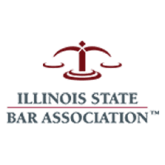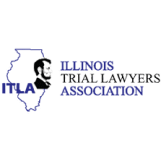Nursing Home Generators: Keeping Residents Safe
Three months ago Hurricanes Harvey, Irma, and Maria devastated parts of the United States. Many parts of Texas, Florida, and Puerto Rico continue to reel. Of course, their main concern remains clearing, repairing, and rebuilding their landscapes and homes. However, some saw frightening images of the affects on nursing homes. What happens to the residents in their care when the power goes out?
La Vita Bella Nursing Home
On August 27, 2017, Timothy J. McIntosh, the son-in-law of the facility owner the Dickinson, Texas La Vita Bella nursing home, tweeted a picture of an elderly woman sitting in waist-high murky water from the flooding of Hurricane Harvey. In his post, McIntosh was urging rescue teams to help evacuate the nursing home by demonstrating just how dreadful the situation had become. People shared the photograph via Twitter and Facebook. Ultimately, this story had a happy ending. The nursing home residents were successfully relocated to another nearby facility.
While this situation and other like it ended happily, Florida wanted to become more proactive.
Florida’s Attempt to Require Generators at Nursing Homes
Florida Governor Rick Scott urged his legislators to act. He urged passage of a bill requiring all nursing homes and assisted living facilities to have back-up generators with enough fuel to sustain power for 96 hours. This specific piece of desired legislation came as a result of an incident at a Broward, Florida nursing home where damage from Hurricane Irma lead to the facility’s air-conditioning system failing and causing the death of six residents.
In September, Governor Scott enacted an emergency rule. The rule required all nursing homes and similar facilities to meet the generator and fuel requirement. However, the discussion did not go much farther. When Governor Scott met with legislators and the Florida Agency for Health Care Administration on Friday, November 3, the meeting lasted 30 minutes. Many hoped that the emergency rule would become codified. However, that did not occur.
Administrative Law Judge Garnett Chisenhall
Previously on Friday, October 27, Administrative Law Judge Garnett Chisenhall ruled that the regulation was an over-reaction to the deaths at the Broward, Florida nursing home. The judge advised that the Florida Agency for Health Care Administration did not have the “authority to require all nursing homes and assisted living facilities to purchase generators and fuel by Nov[ember] 15” as required by Governor Scott’s emergency ruling from September.
Administrative Law Judge Garnett Chisenhall came to his decision based on a multitude of reasons:
- Technical experts
- Electricians
- Meteorologists attesting to the likelihood of a similar hurricane occurring this year
- a prior act revoking the nursing home’s license after the incident
- The lack of correlation between the incident at the nursing home and other nursing homes within the state of Florida
Ultimately, Judge Chisenhall concluded that a vast majority of nursing homes and ALFs could not comply quickly. He noted that it seemed impossible for them to achieve compliance by Nov. 15, 2017.
What Does This Mean for Illinois Nursing Homes?
Governor Scott has appealed the decision. But this dialogue has caused many Illinois laws and regulations say. Many have wondered what nursing home regulations regarding power generators exist. How do nursing homes in Illinois ensure the safety of their residents in power outages?
Illinois states that each nursing home facility within the state of Illinois “shall have policies covering disaster preparedness, including a written plan for staff, residents and others to follow.”
The plan shall include, but not be limited to, the following:
- Proper instruction in the use of fire extinguishers for all personnel employed on the premises;
- A diagram of the evacuation route;
- A written plan for moving residents to safe locations within the facility in the event of a tornado warning or severe thunderstorm warning; and
- An established means of facility notification when the National Weather Service issues a tornado or severe thunderstorm warning that covers the area in which the facility is located. The notification mechanism shall be other than commercial radio or television.
The rules further state that nursing homes must hold a fire drill at least quarterly for all employees. They must hold any other disaster drills two times annually for all personnel. The importance of practicing resident evacuations is also stressed throughout the rules. However, they do not require nursing homes to purchase and maintain backup generators.
As technology continues to improve our way of living and as we become more reliant on it, the likelihood of natural disasters creating a debilitating situation for nursing homes in the United States will continue making this issue one that will not disappear any time soon.














